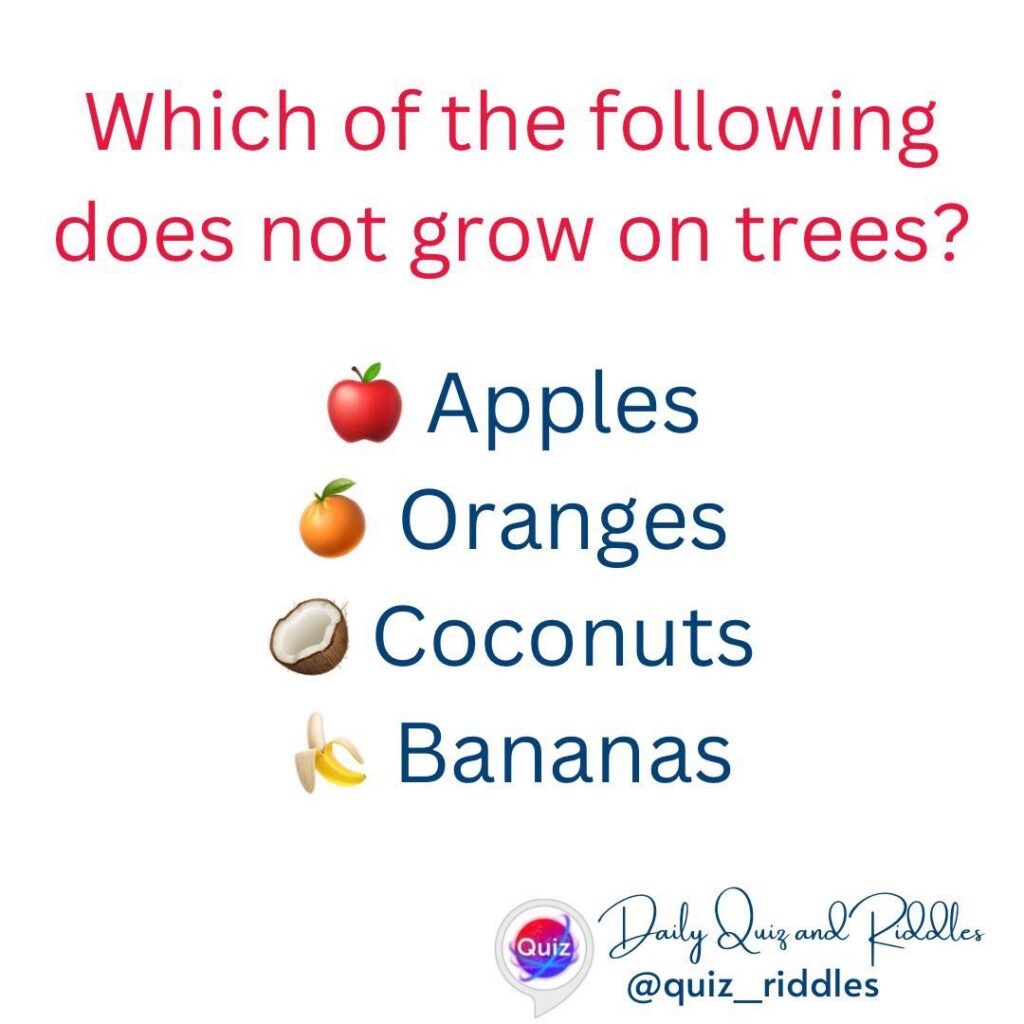Introduction:
Ever strolled through a fruit aisle and wondered exactly where all these fruits come from? While apples and oranges proudly hang from trees, not all fruits are tree dwellers! In fact, one popular fruit on our list is a bit of a trickster in the plant world. Let’s dive into our quiz question: Which of these does not grow on a tree? Apples, oranges, coconuts, or bananas? Ready to find out the answer? Let’s peel back the truth!
Unveiling the Imposter: Bananas
The correct answer is D. Bananas. Yes, that’s right—bananas do not grow on trees! Though often referred to as banana trees, the plants that give us these creamy, delicious fruits are actually large herbs. Scientifically known as Musa, banana plants are related to ginger and heliconia, a group known for their large, decorative flowers.
What’s a Pseudostem?
Bananas grow from something called a pseudostem, which is made up of the tightly wrapped bases of leaves. This stem looks and feels sturdy like a tree trunk, but it isn’t woody—it’s herbaceous! When a banana plant is ready to fruit, it shoots up a tall flower stalk, which then produces a bunch of bananas. After the fruit is harvested, the pseudostem dies back, and new stems grow from the root base.
Other Fruits in the Quiz:
- Apples (A) and Oranges (B): These classic fruits are true tree dwellers, growing on wooden branches of apple trees and orange trees, respectively.
- Coconuts (C): Coconuts might look exotic, and though they grow high up, they indeed come from coconut palms, which are classified as trees.
FAQs:
- Can a pseudostem support as much weight as a real tree trunk?
- While not as tough as a woody trunk, the pseudostem is surprisingly sturdy and can support a heavy load of bananas as well as withstand moderate winds.
- Are there other fruits that grow on herbs?
- Bananas are the most notable, but this highlights the diversity within the plant world, where classifications can defy our usual expectations.



